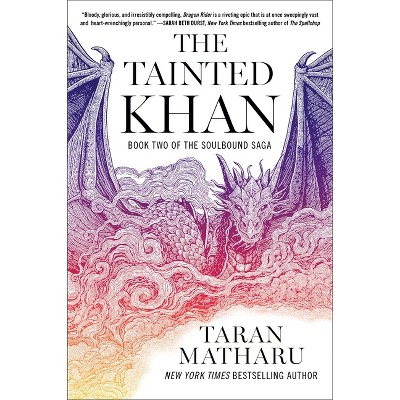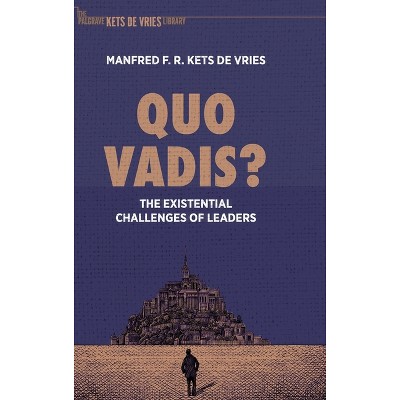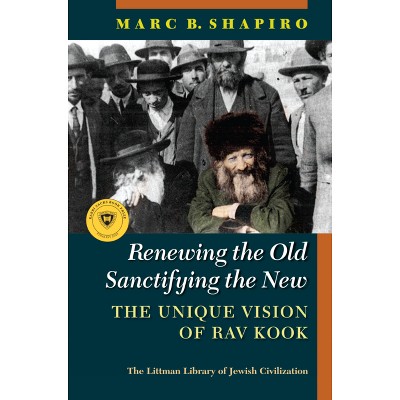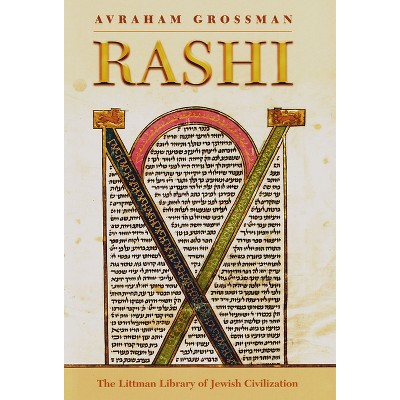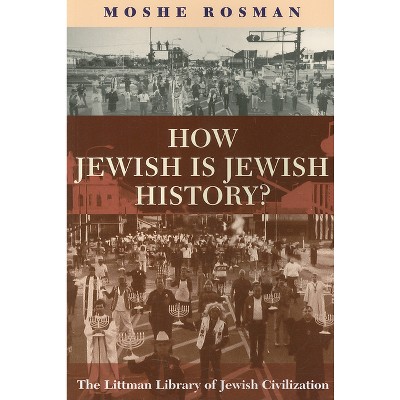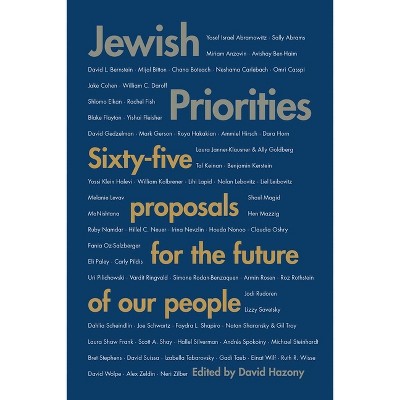Sponsored

Hakham Tsevi Ashkenazi and the Battlegrounds of the Early Modern Rabbinate - (Littman Library of Jewish Civilization) by Yosie Levine (Hardcover)
In Stock
Sponsored
About this item
Highlights
- With the social and cultural upheavals of early modern Europe, rabbis were constantly struggling to preserve Jewish tradition.
- Author(s): Yosie Levine
- 296 Pages
- Religion + Beliefs, Judaism
- Series Name: Littman Library of Jewish Civilization
Description
About the Book
With the social and cultural upheavals of early modern Europe, rabbis had to fight to preserve Jewish tradition. Hakham Tsevi Ashkenazi, chief rabbi of Amsterdam, emerged as one of the leading halakhic authorities of the epoch, and the battles he waged would come to define rabbinic norms in the decades that followed.
Book Synopsis
With the social and cultural upheavals of early modern Europe, rabbis were constantly struggling to preserve Jewish tradition. Hakham Tsevi Ashkenazi (1658--1718), the independent-minded chief rabbi of Amsterdam, came to be regarded as one of the leading halakhic authorities of this tumultuous era. The battles he waged changed Jewish practice in his lifetime and came to define rabbinic norms in the decades that followed, with relevance to the present day.
The challenges for a leading rabbi in a time of ferment were many. With advances in communication and the early stirrings of political emancipation in Jewish and secular society, how could one establish halakhic authority? How were rabbis to navigate the new reality in which mystical texts--once the exclusive province of the elite--became accessible to the masses? As geographical boundaries shifted and cultural barriers crumbled, how could one build a bridge between the worlds of Ashkenaz and Sepharad? How were the keepers of tradition meant to respond to the religious laxity that accompanied acculturation? And how could the religious establishment engage sectarians in general, and crypto-Sabbatians in particular?
Hakham Tsevi didn't always win the battles he fought, but his arguments have endured. Products of his fierce independence, some of his responsa have attained near-canonical status., Today's halakhic discussions of such contemporary issues as brain death and artificial intelligence often begin with the words he committed to posterity. Hundreds of years after his death, Hakham Tsevi and his work remain at the frontier of halakhic discourse.
Review Quotes
'A robust exploration awaits readers of the book. The volume is well written, meticulously sourced, and profoundly insightful. Levine has done an excellent job of opening up this fascinating and seminal figure in a comprehensive fashion.'
Ross Singer, The Jerusalem Post
'Rabbi Levine packs a lot into a little over 200 pages. He is a superb writer, and Hakham Tsevi is a fascinating personality, such that one ends the book wanting to read a lot more.There are but a handful of rabbis of centuries past whose opinions live in posterity, and Hakham Tsevi is one of them. In this remarkable work, Rabbi Levine makes it eminently clear why Hakham Tsevi is as relevant in 2025 as he was during his lifetime.'
Ben Rothke, Jewish Link
'This book's approach makes it both accessible to general readers and invaluable to scholars. By drawing on a wealth of duly footnoted and referenced sources, especially the writings of Rabbi Ashkenazi's son, Rabbi Yaakov Emden (sometimes known as Ya'avets), Rabbi Levine enriches the narrative with scholarly and historical insights. Ultimately, this work - based on Rabbi Levine's doctoral dissertation in Jewish history at Yeshiva University - is a masterful feat of writing, blending scholarly rigor with readability. It paints a vivid portrait of a towering rabbinic figure and his turbulent times, while drawing connections to enduring challenges in contemporary Jewish communal life. This reviewer sincerely hopes that Rabbi Levine will continue to produce more intellectual biographies of the gedolim of yesteryear in the same style.'
Rabbi Reuven Chaim Klein, Jewish Action
Shipping details
Return details
Frequently bought together


Trending Non-Fiction






